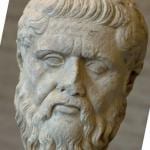 (In reviewing and discussing this film, I will try to avoid large spoilers to IX. However, discussing philosophy may imply certain general outcomes in IX and I will confirm facts obvious from the trailers. There certainly will be spoilers to films VII, VIII.)
(In reviewing and discussing this film, I will try to avoid large spoilers to IX. However, discussing philosophy may imply certain general outcomes in IX and I will confirm facts obvious from the trailers. There certainly will be spoilers to films VII, VIII.)
Star Wars IX is a good time at the theater. If you want Star Wars to be space opera, names like Skywalker and Chewbecca don’t lend themselves to seriousness, then this is perfect. If sequels had to be made, and why not, then this is a decent way to end our times with some old friends. Is it creative? Not particularly. Is it edgy? There is the usual dose of Hollywood depravity, but safely cuttable for the global market that is not going down Hollywood’s road. Is it art? Perhaps not, though I am dubious most of us opining on “art” or “cinema” have rigorous definitions of either term in mind. This was a film for fans, not critics.
The Arc of the Series Changes (Spoiler to IX)
The final film changes everything story wise. The first films (IV-VI) are the restoration of the Republic. They offer hope for redemption for anyone and promise the triumph of good over evil. The second set of films (I-III) modified the story of the six films. The prequels are the Fall of the Republic and the Fall of Anakin and the Rise of Vader. This forces all six films to become Rise and Fall of the Empire that parallels the Decline and Restoration of Anakin Skywalker (Darth Vader). These last films (VII-IX) again modify the story so that it becomes more simply the Rise and Fall of the Empire. The central and enduring figure becomes the Emperor Palpatine. Like Milton’s Paradise Lost, the great villain overtakes the heroes in interest: his shadow is over every film.
The good news is that the character is worthy of such a role. Palpatine is one of the better characters in the Lucas films. He is Julius Caesar and his political analysis is not all wrong. The Republic is dying. He is very clever and is (like Asimov’s Foundation Mule) able to foresee much and maneuver much to his advantage. Film IX takes advantage of this power and heals the great error of VII and VIII: no satisfactory villain.
This is a Star Wars film made by Disney so the ending might be bittersweet, but is not sad. (Does this count as a spoiler?) The major themes of healing, hope, and restoration return in the face of seventy years (or so) of manipulation, evil, and despair. That’s good news and means the nine are found in the three as promised in the first.
The Problem is VII, not VIII
Many fans, including me, were sad to see Han and Luke portrayed as failures. Some focused wrath on episode VIII where Luke Skywalker, the boy-warrior-hero, becomes an embittered failure, alone on an island. This is mistake in light of all three films. Instead, the original sin (if it is a sin) of the sequels came in VII.
There Han and Leia are separated, the Republic in ruins, and Luke gone.
There are, after all, other ways to grow old. One can become a mentor or sage. The things one builds can continue and grow stronger. An older man joyfully can pass the power to his heirs and she can take up the lightsaber and fight the good fight. Instead VII gave us despair and if VIII doubled down, then it was VII that set the course.
If IX must try to wrest a happy ending for our heroes out of the pit of VIII, then VII dug the pit that made the series sad. JJ Abrams fell into the laziest way to see a hero in decline: failure and sorrow, victories in youth that did not matter. Beowulf gives a different path: a hero in decline physically who goes on one last quest for the sake of his kingdom. Beowulf found no need to mock the early victories and resurrect Grendel. Surely some heroes go out happy, full of years, and content in the victories won, setting their nations on good courses, honored in their day, allies in power: think George Washington. Everyone must die, but not everyone dies in misery.
JJ Abrams was lazy, sending the characters of my youth into despair for no other reason than lazy writing. Fans then blamed the writers in VIII for continuing the doomed course: the chief villain being the failure of the heroes in life. The natural end to all of this was for General Organa to die alone.
If Abrams tried to reboot from VIII, his task was made hard by needing to create a trilogy in one film. He was saved by Palpatine, but not everything could be rectified in one film.
The New Characters, Gravity, and Hope
The newer characters are excellent. I hope they can make some films set free from the gravity of better, more mature actors. The original cast was not so good when they were young, but with the force of years and maturity, they dominated all three films. Carrie Fischer was dead and could be given all too few lines, but she commanded every scene in which she sort-of-appears.
Being dead, she speaks.
Newer fans embraced the younger characters, but their heroes were not given the emotional space to develop as mine were. They were forced to compete with characters that had gained decades of backstory and power. We can only hope to see more of Rey, Finn, and Poe. Could someone redeem and restore the character of Rose? Rey may be one of the most interesting characters in Star Wars. Can we see her grow old in many films and new stories?
I shan’t as I am too old, but I hope this blessing for my own younglings.
Meanwhile, in this film, despite all flaws, the space opera continues and the force is with us . . . Always.












